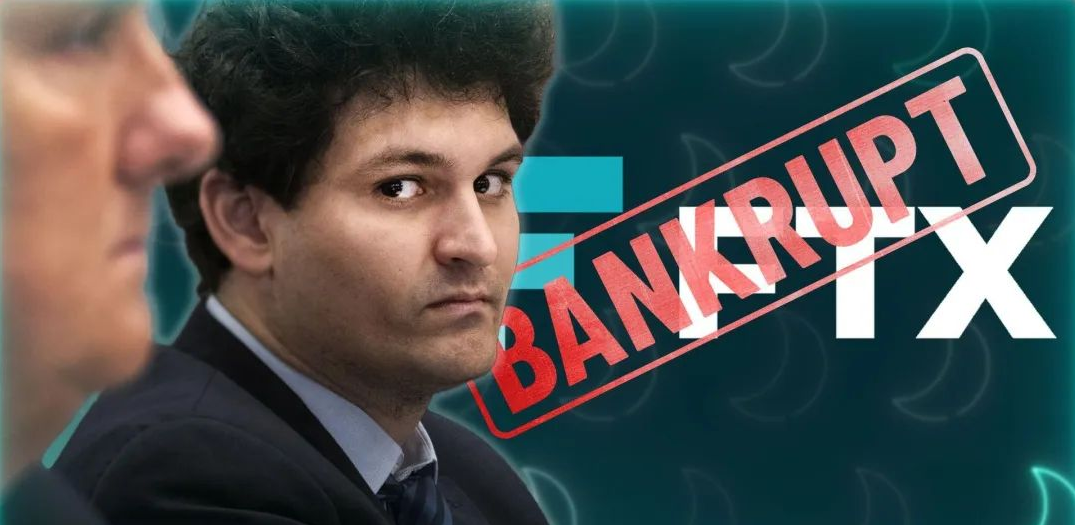Revisiting the Legitimacy of Crypto: The Ideological Divide Between Us and Vitalik
Rethinking Crypto Legitimacy: A Divide Between Us and VitalikAt the recently concluded EDCON event in Montenegro, the “DeBox incident” was one of the most talked about topics. Its team members met Vitalik at Zuzalu in Montenegro and took a photo with him, which attracted a lot of attention to DeBox. In the following days, many domestic teams also followed this “photo marketing” approach and “surrounded and intercepted” Vitalik, which caused some annoyance to Vitalik himself and led to the later “No Chinese” rumors.
The whole incident revolved around Vitalik, but looking back at the Chinese cryptocurrency community, many project parties are seeking Vitalik’s endorsement, as if there is an unwritten rule that “what Vitalik likes is good, and what he doesn’t like is garbage.” So why do domestic projects pursue Vitalik’s endorsement?
As early as March 2021, Vitalik wrote an article titled “The Most Important Scarce Resource is Legitimacy”. Later, at various conferences, project parties and users also believed that if a project obtains the Ethereum Foundation’s or Vitalik’s endorsement, it can be called a “legitimate project”. Therefore, in this environment, Vitalik’s concept of legitimacy has become a sacred edict for project parties to pursue legitimacy. So what does the legitimacy of Web 3 refer to? Is our understanding of “legitimacy, legitimacy, and legality” different from Vitalik’s “legitimacy”?
What is the “legitimacy” we often talk about?
In Vitalik’s article, legitimacy means that the public follows a common set of ideas and beliefs in a theory mechanism that already exists or is about to emerge, which is the element needed for legitimacy. In Web 3, the interpretation of legitimacy for projects is in the community. A community with strong cohesion and common beliefs, such as the meme coin that was popular some time ago, has no use cases, simple concepts, and relies entirely on our desire to play; for the industry, it is some people or technologies in the industry that are worth others’ belief. With their crypto attributes, they can make a project or person close to them gain legitimacy.
- Benefits and Challenges of StarkNet Built-In Functions
- Why is LSDFi considered a transparent narrative?
- How does Ethereum adapt to and influence traditional finance?
That is why everyone seeks legitimacy certification from someone/community. So why are Chinese more concerned about “legitimacy”?
For most domestic encryption projects, once they obtain the support and endorsement of Ethereum core figure Vitalik, it indirectly proves the quality and reliability of the project, and can quickly gain a lot of attention and popularity, which can bring a lot of exposure to the project. If it is a project that has issued a coin, it can directly withdraw economic benefits and obtain a sharp increase in the coin price in the short term.
In the Chinese coin circle, making money, especially making quick money, has been proven to be the most solid consensus. Obviously, this kind of getting attention by taking a photo together can satisfy this need. It does not require development or delivery, only a proof photo, which can attract the attention of many investors. Especially in the bear market when everyone has no money, as long as the majority of leeks are willing to chase the rise, this effortless “expectation management” will continue. In the Chinese coin circle where the quality of projects varies, relying on taking a photo with Vitalik/experiencing the project to gain popularity and then making a profit from leeks, this method was once very popular, to the extent that everyone went thousands of miles and enjoyed it.
For example, CityDAO, a project that was once extremely popular – a project that aims to own land in the form of a DAO and govern and purchase land in the form of NFTs, attracted the participation of Vitalik, Coinbase CEO Brian Armstrong, and others. Even Vitalik personally posted and minted to support the project, and its floor price once soared to 3 ETH. Many domestic users also rushed into the project because of Vitalik’s mint. However, the popularity subsequently plummeted, and its floor price is currently 0.029ETH, which is also a typical example of Chinese pursuit of legitimacy.
Therefore, we have to admit that the ideology and narrative of the encryption industry are still dominated by the West. Many high-quality project parties have expressed that Chinese project parties have difficulties in going overseas, and symptoms of not adapting to the international market have emerged. In this situation, many project parties began to take shortcuts to obtain Vitalk’s approval and pursue “legitimacy” to gain exposure.
But in fact, many projects pursuing a photo with Vitalik are also forced to do so. Not all domestic projects are crazy about pursuing business models and abandoning the nature of crypto. China is not short of talent, nor are there no good projects. We see that many projects have Chinese people involved, such as high-quality domestic infrastructure like Conflux and Alchemy, which have been widely recognized by the market, and scaling projects like Scroll, which have also won the recognition of the Ethereum community and the legitimacy of the project and technology itself, and naturally will also gain the legitimacy of publicity, rather than relying on endorsements and popularity by some big shots to gain traffic. Only in this way can first-class domestic encryption projects be created.
Many domestic projects with a great public awareness and a desire to contribute to the development of cryptographic infrastructure exist, but due to the barriers of language and culture, they still cannot gain recognition in the Ethereum mainstream community, which is dominated by western narratives. After all, the voters do not understand Chinese, and the judges with speaking rights find it difficult and indeed have no motivation to understand what your project is about. Naturally, you will lose in the final vote.
It can be said that the language and cultural barriers are currently the biggest obstacle for domestic projects to obtain legitimacy. Even Vitalik himself is aware of this. Vitalik has raised questions about the results of Optimism’s recent financing round, pointing out that the voting results lack diversity, and specifically naming the Chinese Ethereum community ethereum.cn as a winner. However, due to the choice of voters and subconscious biases, this Chinese community that has translated a large amount of high-quality technical materials and is committed to popularizing Ethereum technology in China did not receive any award.
Vitalik also points out the objective reasons for this problem, namely: when judging projects that use non-mainstream languages (English) as the main language, most voters have no way to judge the quality of the project due to language differences. In addition, voters also need to integrate into the Chinese community and understand the social dynamics of the specific project, as well as fully understand the mentality of technical and non-technical readers to judge the usefulness of the website for them. Among the current voting holders dominated by the United States, there are basically zero voters who meet these requirements. Even the two Chinese-speaking voters are Americans and have little to do with the Chinese Ethereum community.
Therefore, it is difficult for our domestic projects to obtain a business model through public awareness. We have to reverse the priorities, pursue a business model first, and then build public awareness. We can obtain Vitalik’s endorsement to increase project exposure and visibility. This is not wrong, it is just a means of publicity.
However, there are often some problems in the process of pursuing public awareness through pursuing a business model. First, some projects stagnate after obtaining a business model, which also reflects the degree of fraud of the project. The higher the degree of fraud of the project, the less willing we are to participate, and it also lacks legitimacy in everyone’s understanding. Second, our starting point is to rely on the recognition of a person or a community, while foreign projects seem not to care about the recognition of a person or a community. For example, many foreign projects do not care about Vitalik’s opinion. So how do we understand the “Legitimacy” of foreign projects?
What is Vitalik’s understanding of Legitimacy?
After the Heishan Conference, the concept of Legitimacy in foreign projects and users seems to be different from the existing understanding of “orthodoxy” in domestic projects. In Vitalik’s article, Legitimacy refers to convincing at least some people through certain legitimate reasons. It has social, multi-person recognized, non-authoritative, and even civic attributes. From this perspective, proving the legitimacy of a project by taking a photo with Vitalik is a misinterpretation of legitimacy itself. Therefore, it may be more appropriate to translate Legitimacy as legitimacy in the Chinese context.
In addition, in this article, Vitalik also emphasizes public goods, saying that although the cryptocurrency industry does not lack money (there are tens of billions of dollars in circulation in the cryptocurrency industry), such products with Legitimacy lack funds and can only receive tens of millions of dollars in funding each year. They are crucial to the sustainability of the capital.
This seems to indicate a contradiction. Although public goods are sustainable and have long-term value, and are crucial to everyone, they are difficult to make money or raise capital in the short term because they lack commercial value. Therefore, they need additional support. Perhaps this is the real purpose of Vitalik’s article, to provide guidance for public-minded products, that is, if a project does not have a budget or a business model in the short term, Legitimacy can be used as a method to maximize its influence on the community and obtain more funding to support the long-term development of the ecosystem.
In detail, the concept of Legitimacy originally proposed by Vitalik comes from Bitcoin and Ethereum, both of which have the ability to mobilize a large amount of capital, but are limited in how to use these capital. So the problem is the profound and powerful social force behind these large amounts of available capital, things that are widely and universally accepted in a coordinated system. If it is not given moral value, Legitimacy can be seen as a social situation.
Legitimacy includes factual norms and collective consensus of the group, and according to Vitalik’s point of view, there are multiple ways to achieve the formation of Legitimacy: violence, continuity (inertia), fairness, process, performance, and participation, which are not mutually exclusive. The cryptocurrency and blockchain ecosystems “win” Legitimacy through community acceptance and adoption, but the sustainability of the Legitimacy of these things depends on maintaining the factors that initially made them Legitimacy: decentralization and proof of security.
Finally, Vitalik also mentioned that Legitimacy determines the best practices for interacting with the crypto world – understanding and applying the power of this concept is a necessary condition for bringing the greatest benefit to the crypto world. In other words, foreign Legitimacy is the opposite of ours. For example, foreign project XXX can achieve good development and business models without relying on Vitalik’s endorsement. They obtain business models by pursuing public awareness, which also confirms Vitalik’s Legitimacy and conforms to the true intention of the article.
Conclusion: Can domestic projects break out of the shadow of orthodoxy?
For us Chinese, we will eventually have good domestic projects, provided that we need to be strong enough to forge ahead. Blindly pursuing the so-called orthodoxy for publicity instead of cultivating projects and building better and more diverse projects that can influence or even lead the crypto industry for Chinese people is the right way to go. Pursuing the orthodoxy of domestic projects is not a problem.
Vitalik has said that there are many ways to form Legitimacy, but for now, the classification of orthodoxy for us should also be diverse. For current domestic projects, they can be classified into the orthodoxy of the project itself, the orthodoxy of technology, and the orthodoxy of publicity (which is the most commonly used way for domestic projects). Pursuing the orthodoxy of the project itself and the technology of the project, rather than relying on the orthodoxy of publicity for a period of time to make a big fuss, is more beneficial to us, and temporary empowerment ultimately does not belong to oneself.
Projects that we can build ourselves in the Web 3 field may not necessarily be worse than those built abroad. In fact, most Web 3 projects have Chinese people involved, and even the project leaders are from/originated in China. However, the regulatory environment and policies in China are not friendly to Web 3, and many people have also gone abroad to expand their horizons.
In a sense, this is very similar to the development history of our country. Many years ago, we supported Chinese students to study abroad for knowledge and technology, but ultimately they returned to their homeland. “Some people rush to all corners of the world with various ideas, and many people will rush back from all corners of the world in the future.” With the formal landing of the HK encryption policy, on the premise of “having our own policies”, we have learned to use the power of Legitimacy, enhance public awareness, and deconstruct Western authorities (individuals, organizations, or countries). It will not be too long for domestic projects to break out of the shadow of orthodoxy.
We will continue to update Blocking; if you have any questions or suggestions, please contact us!
Was this article helpful?
93 out of 132 found this helpful
Related articles
- Looking for Alpha on-chain: which are the fastest-growing protocols? What are the current trends and narratives?
- Ethereum’s “semantic layer”, Relation and EIP-6239
- Speech by Huang Renxun at the National Taiwan University graduation ceremony: How did NVIDIA, after experiencing multiple failures, grow into a trillion-dollar AI giant?
- Three major product matrices, exploring X2E in multiple scenarios, Salad Ventures builds Web3 economic flywheel effect.
- BKEX: Suspends withdrawals due to cooperating with the police to investigate funds suspected of money laundering.
- Analysis of a whale who spent $385,000 buying new tokens within 72 hours
- Quick overview of the advantages and potential issues of stateless Rollup





